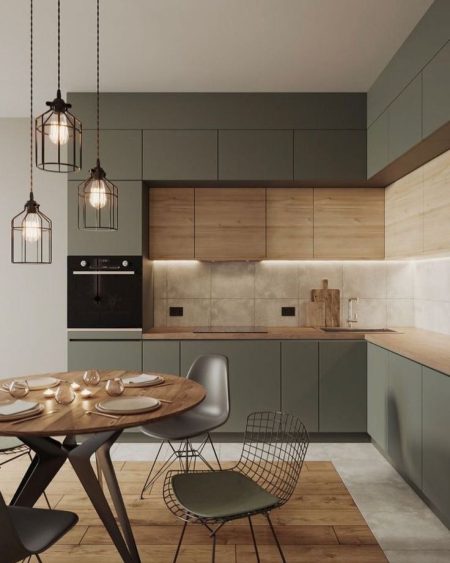Pay Dirt is Slate’s money advice column. Have a question? Send it to Athena and Elizabeth here. (It’s anonymous!)
Dear Pay Dirt,
I am very lucky and just bought my first house. It is a three-bedroom home close to work and the perfect spot for visiting family since everyone is all over the metro area. Everything works but the interior is very dated. I don’t care and frankly, with the rising cost of everything, I am in no hurry to change anything. It drives my family insane. They are all very addicted to all those home improvement and design shows. And a lot of them are very good at it. I still don’t care that I don’t have the perfect garden or lawn or that the bathroom has chintzy wallpaper or that my tile kitchen tops are dated or that my outdoor furniture was bought on sale or that I don’t have 19 different plates to go with whatever theme they have in mind for the party.
I have a new home and have enough on my plate between work and my volunteer commitments. I think my family should be happy enough that the bathroom is clean and there are fresh sheets on the bed when they stay over. I keep telling them to drop the subject but they continue to bring it up or send me links to Pinterest boards or YouTube videos. It is like playing Wac-A-Mole. I do honestly like having my family over but I am at the point of just locking the door and pretending I am not home. Help!
—No Design
Dear No Design,
Congrats on the new home! That’s a tough accomplishment, especially in this market. Sometimes there’s nothing like locking the door and hiding away. But believe me, that still won’t get them to stop sending you their Pinterest boards.
Your family isn’t the only one giving into the craze. HGTV has inspired a lot of people to redecorate their homes and become… passionate about interior design. (This article diving into the phenomenon might be an interesting read for you.) Those who watch HGTV may be unintentionally caught in a “market-reflected gaze.” Basically, people may be caught up on making sure their house reflects what’s currently in style and by that standard, marketable. This trend has led some folks to scrutinize everything they perceive as “wrong” with a home and project it onto others. But so what if your home is “outdated?” It’s your abode, and as long as you’re happy, that’s what matters.
Start ignoring all texts that consist of Pinterest boards and home decor. Don’t answer—delete the messages if you must. When it’s brought up in conversation, stay silent and distract yourself with something else until they ask you what’s wrong. Simply say, “Oh, I was waiting until you were done discussing it since you already know I’m not planning on changing up my home anytime soon.” When you completely stop engaging, they will eventually stop and (hopefully) put their energy toward something else, like finding new light fixtures for their own homes. Good luck.
Need Parenting Advice?
For questions on parenting, kids, or family life, try submitting to Care and Feeding!
Dear Pay Dirt,
I grew up the youngest in a family of five with my father as the sole breadwinner and a stay-at-home mom. As a result, I always felt less economically advantaged when I was growing up in comparison to my friends. My mother hated shopping and never did it for leisure, and although my parents never talked about money, as a child, I always felt that we couldn’t do certain things or have certain things because they cost too much. When I was a teenager and started working my first job, it was exciting to have some spending money, and every time I came home from shopping (within my means), my dad would ask, “What did you buy now?” It got to the point where I hated bringing home shopping bags or would wait until he was out because I felt like I was doing something wrong.
Fast forward to now, I’m a college-educated, white-collar, salaried 41-year-old married mother of one. My husband and I saved for years and put 25 percent down on our current home in a NY suburb 90 minutes from Manhattan. We have individual retirement accounts, joint/individual savings, each max out our IRAs annually, and we live a generally comfortable life. We share household and child expenses, and each have our own credit cards, of which we pay the balance in full each month, so we are living within our means, able to enjoy extras, and put money aside. However, I do enjoy shopping and buying myself stuff for no good reason, which leads to me feeling guilty. I know I can certainly save more money but I also want to be able to enjoy my money. I’m not living paycheck to paycheck or in debt, but I still cannot shake off this feeling of guilt about spending money.
—Guilty Spender
Dear Guilty Spender,
Feeling guilty about spending money after growing up with little resources is normal. We get people writing in with similar feelings to yours often. Spending money on something for “no good reason” may feel like a waste (especially after those incidents with your dad that you keep reliving decades later). But remember, money is a tool meant for taking care of your well-being and bringing happiness to your life. We’ve all heard the trite phrase, “Money can’t buy happiness,” but it can certainly help facilitate it.
Consider creating a separate checking or savings account where you can transfer a certain percentage of your income to for strictly “fun” purposes. Then, spend from this account. Keeping it separate from your general account will help trick your mind and let you spend freely without guilt. I did this over the spring when decorating my patio. I deposited 10 percent of my income and any random windfalls into a savings account and withdrew cash from there to spend on the project. It was nice to completely redo my space so I could have a place to enjoy while also not feeling guilty about it. The same will work for you.
Want more Pay Dirt every week? Sign up for Slate Plus now.
Dear Pay Dirt,
I am a single mom of two kids, 8 and 14. My current salary is about $76,000 per year which I scrape by on as a single-income household with no additional financial support. I have a mortgage, student loan debt, medical debt, and no savings (it gets consumed by emergencies as fast as I can put it back) plus I also have Multiple Sclerosis. While I am not physically disabled and my medication is working, it looms large in my mind that I could face decline and disability in the future. Couple all of this with the fact that I have largely worked for the state since becoming employed in my 20s and my retirement is a pittance since I have never earned enough to both contribute extra and meet my daily living expenses for myself and my kids.
As a seeming salvation, I was recruited for and offered a job making upwards of $120,000 per year. Initially, I was excited and it seemed like my financial woes would finally be resolved. I would be able to save, pay off debt, put back extra for retirement, and still have some left over. However, when I sat down to crunch the numbers the extra associated costs of an increased commute, increased childcare during the school year and summer, outsourcing lawn and home cleaning due to increased work hours, and the potential need for a new-to-me more fuel-efficient commute vehicle quickly gobbled up the majority of the extra income. As a single adult who has to pay for all of these services to make up for the fact that my new job requires more of my time (and there is no other adult partner at home doing anything with the house or kids while I am gone), I would end up seeing my kids less and still only bringing in about what I am now once I account for all the extras. If I cut out the lawn and house cleaning and just let things go until I could get to them, it puts me a couple hundred to the green but not enough to make the new job “worth it.” I feel so disappointed and stuck. I am even having crazy thoughts like advertising for someone to live with me for free if they’ll clean, mow grass and pick up the kids. Is there some scenario or financial planning trick I am overlooking here that could make this new job work?
—Maxed Out Single Mom
Dear Maxed Out Single Mom,
I think you’ve run enough scenarios to realize that taking this job would not cancel out the associated costs you would be incurring to take it on. Unfortunately, there’s no magical solution or trick that’ll work to fix that. But there are some things you should consider.
Your idea of advertising free rent in exchange for chores, yard work, and picking up the kids doesn’t sound as absurd as you think it does. People do this! (If you live near a college or university, you might consider renting a room to a student in need of lodging.) Between being a single mom and having a chronic illness, you only have so much energy to go around—finding someone reliable to help take some of this load off is the dream scenario.
You can also earn more income while your children sleep by picking up a gig you can accomplish at home. Data entry, transcription, research, and virtual assisting are all things you can do for a few hours in the evening that can allow you to save additional money for retirement or emergencies. But ultimately, the answer might be that this one job might not be the perfect fit just yet. If you really can’t crunch the numbers in a way that will make it work for your family, what about looking for a similar job closer to home (or even a remote/hybrid opportunity) where you can negotiate a similar salary? You might take this job offer as a sign that better pay exists out there in your field, and use it as a catalyst to begin your job search in earnest.
—Athena
Classic Prudie
I’ve always been a “It’s better to give than receive” type, but is it poor taste to stop exchanging with people who seem to give gifts just for the sake of having something to hand over? My husband and I always try to give thoughtful gifts that are relevant to the receivers’ interests and we receive gifts that are of no use (pajama sets that aren’t in our size, oversized coffee mugs, wine that we don’t drink, etc).
Read the full article here









